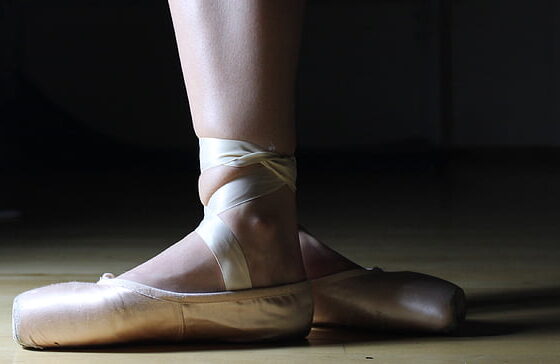 Photo by:
Photo by:
Perfection is everything in the world of “Black Swan,“ the new psychological thriller from director Darren Aronofsky.
Like a ballerina twirling on one foot, the film is heavily reliant on a combination of concentration, dedication, balance, precision and elegance.
The result: a perfect film by every measurement.
The acting, especially from lead actress Natalie Portman, is what transcends the film and makes it one of the year’s best.
Portman, who is at a career high, portrays Nina Sayers, an ambitious young dancer who is consumed in her craft and begins to deteriorate mentally and physically when cast as the lead role in the upcoming ballet, “Swan Lake.”
Sayers’ task, as dictated to her by Thomas Leroy (the phenomenal Vincent Cassel), is to encapsulate both the gracious lead part of the White Swan while giving life to bleak morality of the seductive and villainous Black Swan.
There is almost no effort from Nina to execute the role of the White Swan; however she is naturally consumed with perfecting her performance and proving to her doubters—Thomas and her mother (the haunting Barbara Hershey)—that she is capable of fulfilling the task of seduction as the Black Swan.
Extra hours spent in the studio as well as more time dedicated at home, where she is confined in a room decorated with childhood dolls, Nina begins to develop a mania at securing the part from anybody who wants to take it away from her.
Her obsession with the role breathes deep fear into her delusions that a new dancer, Lily (a standout performance from Mila Kunis), is coming to take the lead role from her similar to how she snatched the coveted position from the again Beth MacIntyre (Winona Ryder).
Meanwhile, Clint Mansell’s fabulous score elevates the film as Nina’s hysteria worsens to the point where she is shedding everything that makes her pure and perfect for the role of the White Swan.
Aronofsky’s meticulous direction drives the film throughout as he tracks Nina from all angles—back and forth, up and down.
His camera work captures all of Portman’s subtleties as she forges Nina’s insecurities and imperfections.
There is nothing his lens doesn’t catch, and like in his previous films, such as 2008’s The Wrestler, Aronofsky drags us down a twisted hole of self-destruction as the protagonist—an athlete or a ballerina, ironically the same in each story—gets too caught up in perfecting their craft and performing for an audience that they have no connection with.
In the end, Nina reaches all of her goals—everything she ever dreamed of as seen in the films opening sequence—and there is sadly nothing but a dark abyss waiting for her as she takes the stage in the film’s final act.
Applause is heard in the background, but what the audience is cheering for is ambiguous. Is it Nina’s perfection or true dedication.










